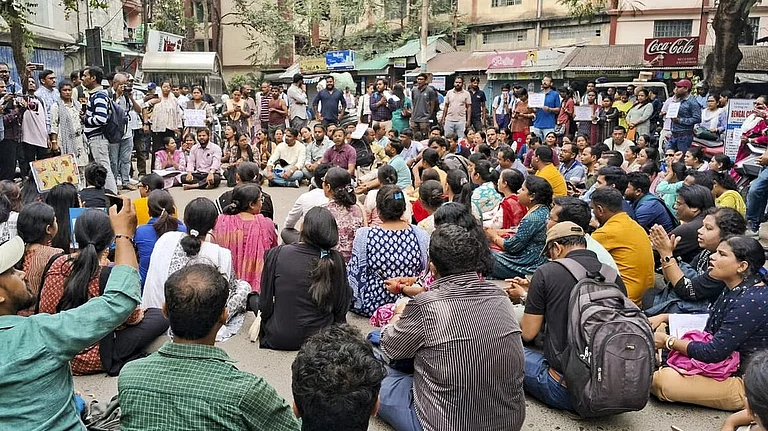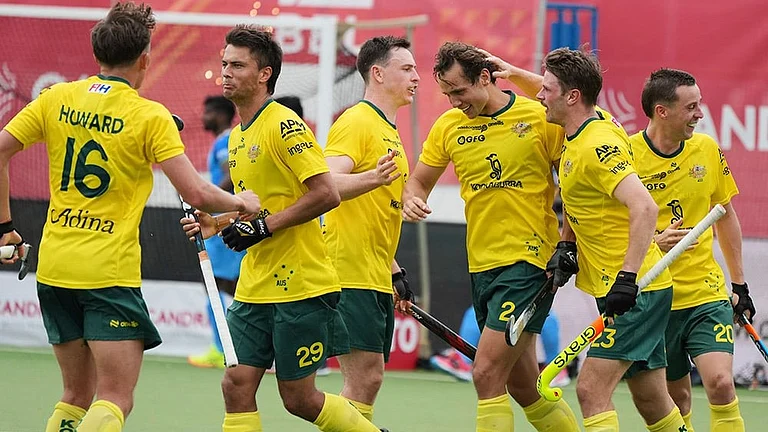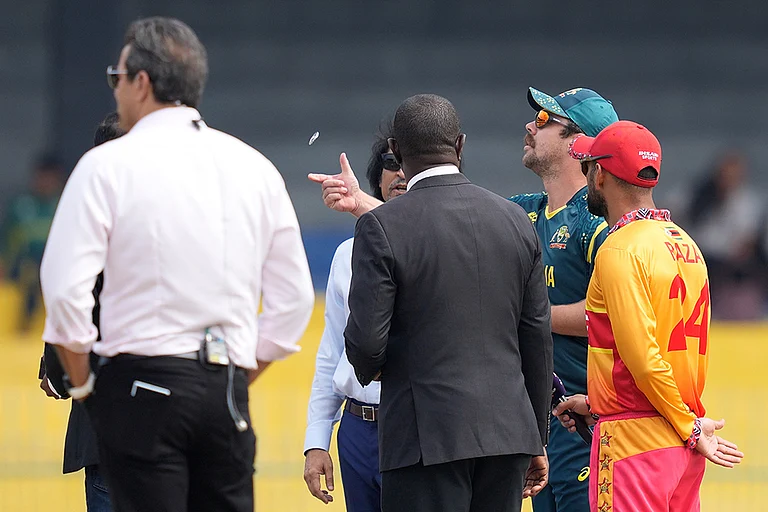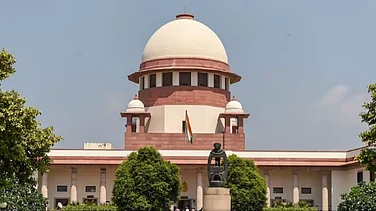Even after eight years of a Supreme Court judgement that recognised transgender people as the third gender, the community still faces discrimination at the hands of government authorities and statutory bodies.
One of the blatant instances is the continuous use of offensive words and terms in the course curriculum of medical education in India. Transgender doctors have demanded the immediate removal of such words to make medical education more inclusive for the transgender community.
For instance, lesbianism is still being considered a sexual perversion in medical terminology which is against the 2014 Supreme Court order. Besides, words like virginity, transgenderism, gender dysphoria, and sodomy among others are still being used and taught which is offensive to the transgender community.
“I teach physiology to first-year medical students and even when we teach from the best of available textbooks, they have numerous offensive pieces of content. For instance, these books mention terms like intersex as disorders of sexual development,” said Dr Satendra Singh, Professor of Physiology at University College of Medical Sciences and GTB Hospital, Delhi.
Dr Singh, who is also co-lead of Trans Care MedEd, added, “Intersex means a person who has both male and female sex characteristics. These can include external or internal reproductive parts, chromosome patterns, genitalia, etc. It is taught as a sexual disorder which is not only offensive but illegal as well. It should be seen as a sexual difference.”
Trans Care MedEd is a project initiated by the not-for-profit organisation Sangath in association with the University of Chicago, Bucksbaum Institute of Clinical Excellence, and Kasturba Medical College, Manipal. The project aims at developing community-based trans-affirmative health education in India.

Transgender doctors say that in 2019, the medical education regulator National Medical Commission revised the medical curriculum for the first time after two decades and made it competency-based. However, many words that are derogatory to the transgender community were not revised.
“Unfortunately, medical colleges still teach and use such words during lectures and studies which amount to a huge embarrassment for this community,” said Dr Aqsa Shaikh, Associate Professor of Community Medicine at Hamdard Institute of Medical Education Research, Jamia Hamdard.
Shaikh, a transgender doctor and one of the co-leaders of Trans Care MedEd, added, “If this continues, it will be a great injustice to transgender medical students. They will feel discouraged and reluctant to join medical education.”
Last year, a case was filed in the Madras High Court in which one of the issues was the revision of the curriculum in medical education to remove transphobic words. The court asked the NMC to look into the glossary of words and do the needful.
The NMC issued an advisory in October 2021 to medical colleges in which it said, “It has been noted that the various textbooks of medical education mainly of Forensic Medicine and Toxicology subject and Psychiatry subject contains unscientific information about virginity and also contains derogatory remarks against LGBTQIA+ community and homosexuals.”
It requested all the medical universities, colleges, and institutions that while teaching undergraduate and post-graduate students, wherever the issue of gender or similar kind arise, “the mention of Clinical history of complaints or signs/symptoms, examination findings or history about nomenclature shall not be taught in such a way that it becomes/is perceived in any way derogatory/discriminatory/insulting to LGBTQIA+ community.”
The NMC also asked writers of medical textbooks to amend the transphobic words.
Dr Anant Bhan, one of the project leaders of Trans Care MedEd said, “The Madras High Court verdict had to come due to inaction from the NMC despite the mandate under the Trans Act 2019. But the NMC directive merely shifts the onus to medical colleges and authors of textbooks. It neither talks about reforming its own CBME curriculum nor a plan for it."
But when the NMC’s advisory went unnoticed, transgender doctors raised the issue at the high court and requested it to issue specific directions to NMC to implement it.
After the court order, the NMC has constituted an expert committee which is identifying words and terms that are offensive to the community. However, the transgender doctors allege that their community does not have any representation in the committee, due to which they are apprehensive of any concrete action.
“They have to identify transphobic content and replace it with appropriate words. This is not possible if the committee doesn’t have transgender representation,” said Dr Singh.
He added that the transgender community is already working on a standard trans-affirmative content.
“Recently, we had a national conference on trans-affirmative medical education in Delhi in which many new terms were suggested by other representative groups,” said Dr Singh.
He added, “In another couple of weeks, it will be ready and we will hand it over to NMC with a request to implement it as it has the approval of the Indian transgender community.”
Outlook wrote an email to Dr Suresh Chandra Sharma, who is the Chairman of NMC, but it didn’t get any response.
Medical experts say that there are several systemic challenges in India in implementing trans-affirmative medical education.
Dr Aniruddha Hazra, Assistant Professor of Medicine, Section of Infectious Diseases and Global Health, University of Chicago, said, “Widely used medical texts continue to perpetuate frank homophobia, heterosexism, and transphobia. While the Transgender Persons Act of 2019 aims to correct this, there needs to be a concerted effort to keep medical institutions at task.
“In addition, sensitisation for queer and trans people is also needed across nearly all medical campuses in India. These challenges are far from unique to India. Medical schools in the United States face similar struggles in their efforts towards trans-affirmative medical education.”
About the Transgender Person Act, Dr Hazra said, “ The Act is a considerably broad legislation in India offering several protections for transgender and gender diverse persons. However, the challenges remain in the implementation and enforcement of this Act. While this Act is a huge step forward, community activists have not seen much change on the ground.”


























